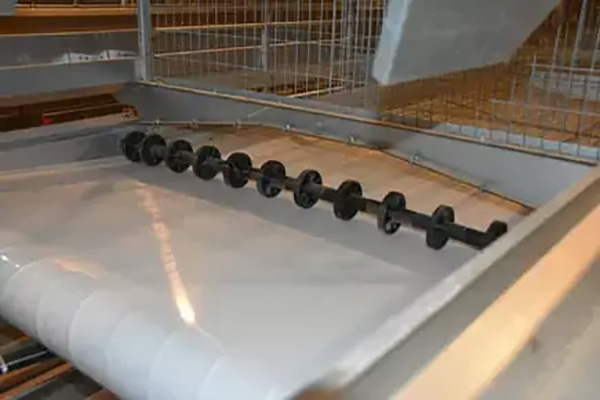Cage Poultry Farming in Kenya: A Comprehensive Guide
Time : 2025-05-12
Cage poultry farming has become increasingly popular in Kenya, especially with the growing demand for chicken meat and eggs. This method of farming involves raising chickens in confined spaces, often within cages. It’s a practical and efficient way to produce poultry products. In this article, we’ll dive into the details of cage poultry farming in Kenya, covering the benefits, challenges, and tips for successful farming.
Introduction to Cage Poultry Farming
Cage poultry farming is a type of intensive poultry farming where chickens are kept in cages. These cages are designed to ensure the health and safety of the chickens, as well as to maximize the production of eggs and meat. In Kenya, this method of farming has gained popularity due to its high yield and cost-effectiveness.
Benefits of Cage Poultry Farming in Kenya
1. Increased Productivity: One of the main advantages of cage poultry farming is the high level of productivity. Chickens raised in cages typically produce more eggs and meat compared to free-range chickens. This is because the confined space allows for better management and control of the chickens’ environment.
2. Cost-Effectiveness: Cage poultry farming is a cost-effective method of farming. It requires less feed, water, and space compared to free-range farming. Additionally, the risk of diseases is reduced, which means fewer veterinary costs.
3. Better Control of the Environment: Cages provide better control of the chickens’ environment. This includes temperature, humidity, and light, which are crucial for the chickens’ health and productivity.
4. Reduced Risk of Diseases: With fewer chickens in a confined space, the risk of diseases is reduced. Regular cleaning and disinfection of the cages also help in preventing the spread of diseases.
Challenges of Cage Poultry Farming in Kenya
1. High Initial Investment: Setting up a cage poultry farm requires a significant amount of capital. The cost of purchasing the chickens, cages, feed, and other equipment can be quite high.
2. Space Limitations: Cages occupy less space compared to free-range farming. This can be a challenge in areas where land is scarce.
3. Ethical Concerns: Some people argue that keeping chickens in cages is inhumane. However, it’s important to note that proper care and attention should be given to the chickens to ensure their well-being.
Setting Up a Cage Poultry Farm in Kenya
If you’re considering setting up a cage poultry farm in Kenya, here are some key steps to follow:
1. Choose the Right Location: Select a location that is accessible to suppliers and buyers. Also, ensure that the area has adequate power supply for lighting and ventilation.
2. Purchase the Necessary Equipment: This includes cages, feeders, waterers, and other accessories. It’s important to invest in high-quality equipment that can withstand the demands of poultry farming.
3. Source Your Chickens: Choose a reputable breeder to supply your chickens. It’s also essential to select the right breed for your specific needs, such as meat or egg production.
4. Feed and Water Your Chickens: Provide your chickens with a balanced diet and fresh water. Regularly monitor their health and growth to ensure they are receiving the necessary nutrients.
5. Implement Biosecurity Measures: To prevent diseases, implement biosecurity measures such as regular cleaning and disinfection of the cages, and restrict visitors to your farm.
Tips for Successful Cage Poultry Farming in Kenya
1. Stay Informed: Keep up-to-date with the latest trends and advancements in cage poultry farming. This will help you stay competitive and improve your farm’s productivity.
2. Network with Other Farmers: Connect with other poultry farmers in Kenya to share experiences and learn from each other. This can also help you find new markets for your products.
3. Focus on Quality: Prioritize the quality of your chickens and their products. This will help you build a loyal customer base and increase your profits.
4. Stay Compliant with Regulations: Ensure that your farm complies with the relevant regulations and standards set by the government.
Conclusion
Cage poultry farming has become a popular method of poultry production in Kenya. While it has its challenges, the benefits of increased productivity and cost-effectiveness make it a viable option for many farmers. By following the tips outlined in this article, you can set up and manage a successful cage poultry farm in Kenya.












